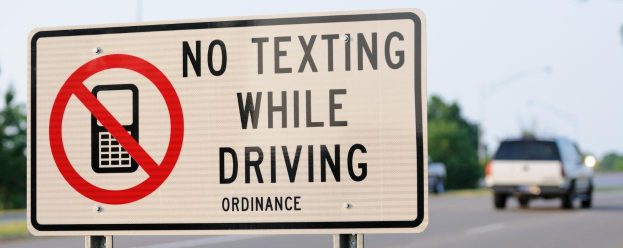30th Apr 2010

Police departments and communities struggle with training and enforcement
On April 30th, Governor Granholm signed into law a ban on texting while driving, making Michigan the 23rd state to enact such a ban. Michigan police have until July 1, 2010, when the law takes effect, to interpret the implications of the new law and train officers in the enforcement of it. Beier Howlett can help.
Although the ban may seem clear-cut at first glance, there will be ambiguity as to what “texting” really means under the law. The statute states: “A person shall not read, manually type, or send a text message on a wireless 2-way communication device in the person’s hand or in the person’s lap…while operating a motor vehicle that is moving on a highway or street in this state”.
Under the statue, the police have the right to stop a motorist and write them a ticket for texting while driving as a primary offense. In other words, texting alone is cause enough to be pulled over; no other offense need be committed. A conviction for a first offense is a civil infraction and carries a penalty of $100 and no points on the driving record. A second conviction results in a civil infraction carrying a penalty of $200.
The statute has a series of exceptions included to allow a motorist to send a text message to report an accident, medical emergency or serious road hazard. A driver can also send a text message to report a situation where they believe their safety is in jeopardy or to report the perpetration of a crime.
But what about email? What about surfing the Web on your cell phone? Are these acts considered “texting”? There is also a question about whether or not the person is texting in a motor vehicle that is actually “moving.” Can a driver send or read a text message while stopped at a red light? What if the communication device is mounted on the dashboard or console?
The answers to these questions will be resolved on a case-by-case basis as local and state police departments begin to enforce the ban. But that does not make the implementation and enforcement of the ban easy for law enforcement and prosecutors (or for defense counsel and the court).
Police departments will have to create policy considerations on the implementation and enforcement of this ban. Officers will need to be trained in what to look for, and what evidence to pay attention to. Officers will need to learn to let the facts develop to a certain point, so as to eliminate some of the ambiguities of the statute.
Beier Howlett can help your department with such training. We are prepared to explain the statute and train your officers at an in-house training for command officers and patrol officers. For further information or to schedule a training session for your department, contact the Municipal Practice Group at Beier Howlett, P.C. (248) 645-9400

Written by Beier Howlett
Contact Attorney Mary Kucharek for more information.
T: 248-645-9400


